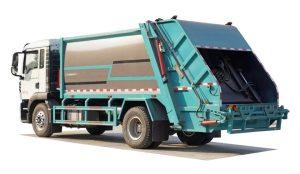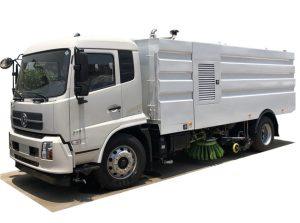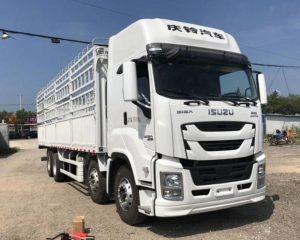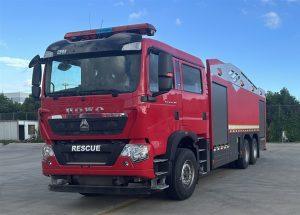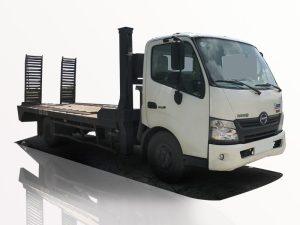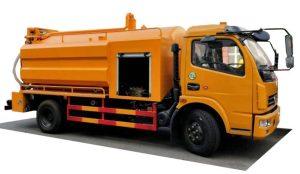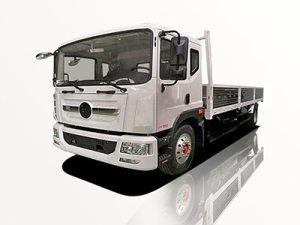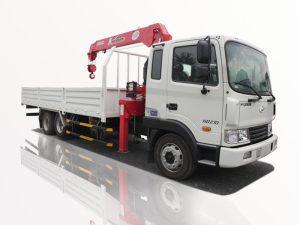Monday to Saturday - 8:00 -17:30
Understanding Vacuum Truck Prices: A Comprehensive Guide
Vacuum trucks are specialized vehicles designed to vacuum up liquids, sludge, and dry materials from various environments, making them invaluable in industries such as construction, waste management, and environmental cleanup. However, one of the most pressing questions when considering the acquisition of a vacuum truck is: what is the price of a vacuum truck? In this article, we will explore everything you need to know about vacuum truck pricing, including factors that influence costs, different types of vacuum trucks, additional expenses, and practical tips for purchasing or renting a vacuum truck.
1. Overview of Vacuum Trucks
Vacuum trucks are equipped with powerful pumps and tanks to collect and transport waste materials. They come in various sizes and capacities depending on their intended use.
1.1 Common Applications of Vacuum Trucks
- Industrial cleaning
- Septic tank pumping
- Sewer maintenance and cleaning
- Hazardous waste removal
- Construction site cleanup
1.2 Different Types of Vacuum Trucks
Vacuum trucks can be classified into several categories based on design and functionality:
- Liquid Vacuum Trucks: Designed to handle liquid waste, such as sewage and slurry.
- Dry Material Vacuum Trucks: Suitable for picking up dry debris and materials.
- Combination Vacuum Trucks: Capable of handling both liquid and dry materials.
2. Factors Influencing Vacuum Truck Pricing
The price of a vacuum truck can vary significantly based on a multitude of factors:
2.1 Type and Purpose of the Truck
The type of vacuum truck required for a specific job will heavily influence the price. For instance, specialized trucks for hazardous waste disposal typically cost more due to advanced safety features.
2.2 Size and Capacity
Vacuum trucks are available in different sizes, typically ranging from 1,000 to 16,000 gallons. Larger capacity trucks tend to have higher price tags because they can handle more material and reduce the frequency of emptying.
2.3 Brand and Manufacturer
Manufacturers like Kenworth, Peterbilt, and Freightliner produce vacuum trucks at various price points. Premium brands often come with higher costs due to their reputation for durability and performance.
2.4 New vs. Used
The decision to buy new versus used can drastically affect the final price. New vacuum trucks generally cost more, but they come with warranties and the latest technology. Used trucks may provide savings but could involve higher maintenance costs.
2.5 Customization and Add-ons
Custom features can increase the price significantly. Add-ons like additional tanks, specialized pumps, or high-pressure water jets are common enhancements that can boost functionality.
2.6 Geographic Location
Market demand and regional regulations can influence pricing. In areas with high construction activity or stringent environmental regulations, prices may be higher.
3. Average Price Ranges for Vacuum Trucks
Understanding the average price ranges can give buyers a better perspective. Below is a table of typical price ranges for different types of vacuum trucks:
| Type of Vacuum Truck | Average Price Range |
|---|---|
| Small Liquid Vacuum Truck (1,000 – 2,500 gallons) | $50,000 – $100,000 |
| Medium Liquid Vacuum Truck (3,000 – 5,000 gallons) | $100,000 – $150,000 |
| Large Liquid Vacuum Truck (6,000 – 12,000 gallons) | $150,000 – $250,000 |
| Combination Vacuum Truck | $200,000 – $300,000 |
| Used Vacuum Truck | $30,000 – $150,000 (depending on age and condition) |
4. Operational Costs of Vacuum Trucks
When budgeting for a vacuum truck, it’s essential to consider ongoing operational costs in addition to purchase price.
4.1 Fuel Costs
Fuel efficiency will vary based on truck type and driving conditions. Diesel is the most common fuel type, and operational managers should calculate fuel costs based on expected mileage.
4.2 Maintenance Expenses
Regular maintenance, including inspections and repairs, can be substantial. A well-maintained truck can reduce long-term costs and prolong the vehicle’s lifespan.
4.3 Insurance and Licensing
Insurance costs depend on factors such as truck value, area of operation, and usage. Additionally, certain licenses may be required for specific activities, adding to overhead costs.
4.4 Labor Costs
Hiring trained personnel to operate vacuum trucks is another expense that organizations must account for, especially if handling hazardous materials that require specialized training.
5. Financing Options for Purchasing Vacuum Trucks
Securing financing for a vacuum truck can alleviate upfront costs. Some popular financing options include:
5.1 Bank Loans
Traditional bank loans offer competitive interest rates. However, a strong credit history is typically required.
5.2 Leasing
Leasing allows organizations to use a vacuum truck without the full purchase price burden. Lease payments are usually lower than loan payments, though ownership is never transferred.
5.3 Financing through Manufacturers
Many vacuum truck manufacturers provide financing solutions tailored to buyers, sometimes offering attractive rates and repayment terms.
5.3.1 Considerations for Financing
When financing, consider factors such as interest rates, repayment terms, and tax implications related to ownership.
6. Tips for Purchasing or Renting a Vacuum Truck
Whether buying or renting a vacuum truck, several key tips can help ensure you make the best decision:
6.1 Assess Your Needs
Determine the primary use of the vacuum truck and choose one that matches your specific requirements. Whether for industrial cleaning, waste management, or construction, understanding your needs will guide your purchase.
6.2 Shop Around
Get quotes from multiple dealers to compare prices. This step is crucial for finding the best deal on your desired model.
6.3 Inspect Used Trucks Thoroughly
For used trucks, a comprehensive inspection is vital to avoid unexpected repair costs. Consider hiring a mechanic or an expert to assess the vehicle’s condition.
6.4 Evaluate Lease Options
If uncertain about long-term needs, consider leasing a vacuum truck. This option offers flexibility without commitment.
7. Frequently Asked Questions (FAQ)
7.1 What is the average lifespan of a vacuum truck?
The average lifespan of a vacuum truck can range from 10 to 15 years, depending on maintenance and usage conditions.
7.2 Are there financing options specifically for small businesses?
Yes, many banks and manufacturers offer financing specifically designed for small businesses, including favorable terms for new truck purchases.
7.3 Can vacuum trucks handle hazardous materials?
Yes, but it requires specialized vehicles equipped with the necessary safety features and trained operators.
7.4 What should I consider when choosing between buying and renting a vacuum truck?
Consider factors such as the frequency of use, budget constraints, and specific needs to determine whether buying or renting is more favorable.
7.5 How much do maintenance costs typically run?
Maintenance costs can vary widely but typically range from $2,000 to $5,000 annually, depending on usage and condition.
7.6 Are vacuum trucks environmentally friendly?
Vacuum trucks can be environmentally friendly when used properly, as they help manage waste and clean up spills efficiently, but they must be operated and maintained to minimize emissions.


